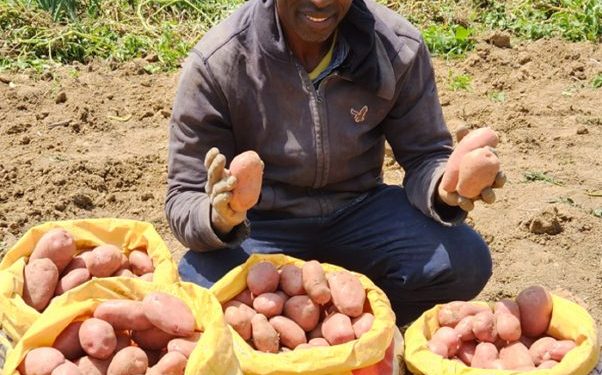Explore the latest advancements in potato breeding as Nigeria releases four climate-smart potato varieties to enhance agricultural productivity and resilience. Backed by data from reputable sources, this article showcases the potential of these new varieties for farmers, agronomists, agricultural engineers, farm owners, and agricultural scientists, highlighting their adaptability to changing climatic conditions and their contribution to sustainable food production.
Article:
Nigeria’s agricultural landscape is set to witness a transformative boost with the introduction of four new climate-smart potato varieties. Developed through innovative breeding programs, these varieties offer a promising solution to the challenges posed by changing climatic conditions, while simultaneously bolstering agricultural productivity. In this article, we explore the potential of these newly released varieties and their impact on the Nigerian agricultural sector.
According to a press release by the International Potato Center (CIP), Nigeria has recently unveiled four climate-smart potato varieties developed through collaborative efforts between CIP and local partners. These varieties, namely “Apomuden,” “Dapudie,” “Gbewaa,” and “Talawae,” have been specifically bred to thrive under varying climatic conditions, exhibiting resistance to pests, diseases, and environmental stresses. The release of these improved varieties aims to enhance potato production, increase farmer income, and contribute to food security in Nigeria.
The introduction of these climate-smart potato varieties holds tremendous potential for Nigerian farmers. With climate change presenting increasingly unpredictable weather patterns, including droughts, heatwaves, and pests, the ability to cultivate resilient crops becomes crucial. These new varieties offer enhanced adaptation to diverse agro-ecological zones, ensuring stable yields even in challenging conditions. This resilience translates into greater food security for the nation and improved livelihoods for farmers.
Moreover, the climate-smart potato varieties bring sustainability benefits to the agricultural sector. They require fewer inputs, such as water and fertilizers, while still maintaining high productivity. By reducing resource usage, these varieties contribute to more efficient and environmentally friendly farming practices, aligning with Nigeria’s commitment to sustainable development goals and promoting the long-term health of the ecosystem.
In conclusion, the release of four climate-smart potato varieties in Nigeria marks a significant milestone in the country’s agricultural development. These improved varieties showcase the power of innovative breeding programs to address the challenges posed by climate change, enabling farmers to adapt to varying climatic conditions and achieve greater agricultural productivity. By embracing these climate-smart solutions, Nigeria is taking a significant step towards sustainable and resilient food production systems.
Tags: climate-smart agriculture, potato breeding, agricultural productivity, climate change adaptation, sustainable food production, Nigerian agriculture, crop resilience, resource efficiency.







